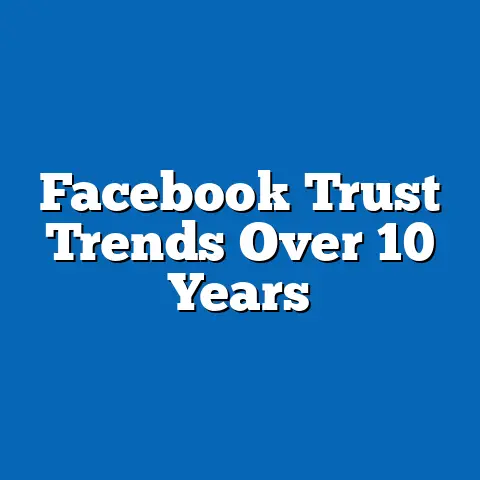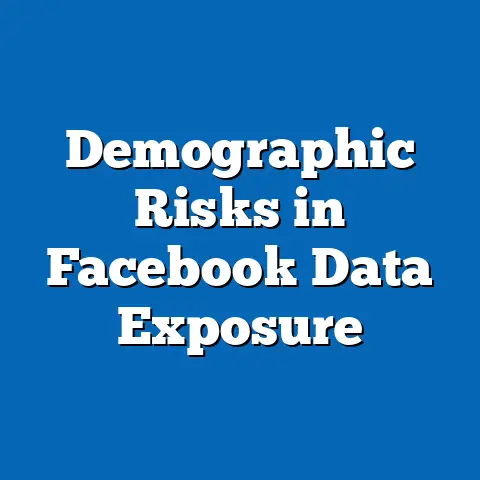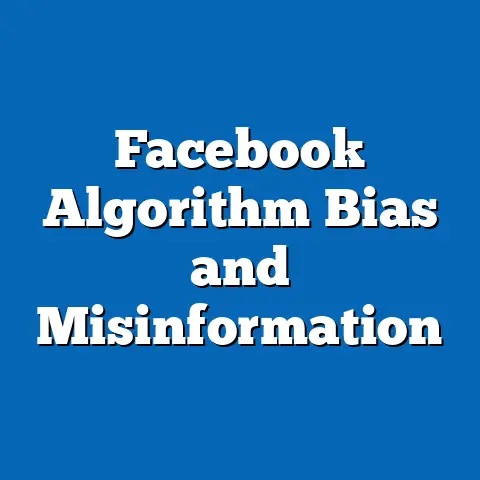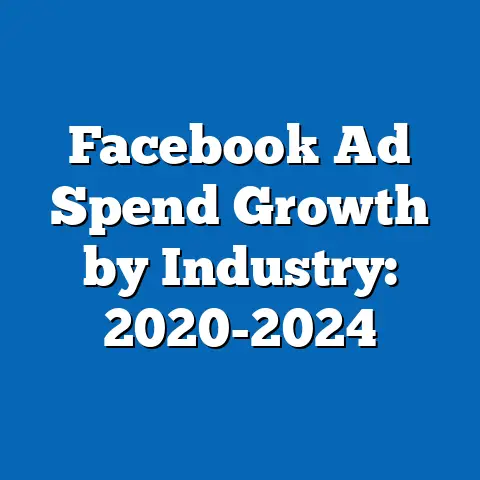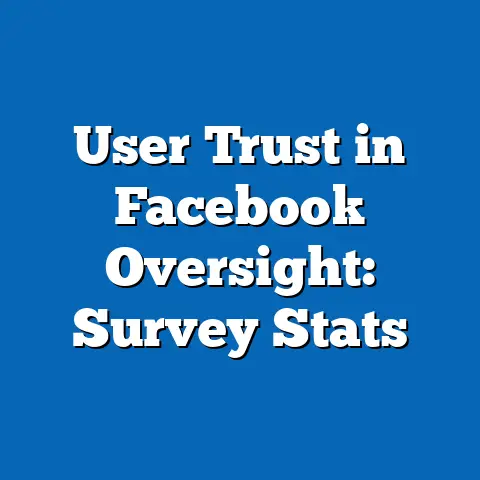Facebook Privacy Settings and Mental Health
The Intersection of Facebook Privacy Settings and Mental Health: A Generational Analysis
Introduction
Facebook, launched in 2004, has evolved into a global platform with over 2.9 billion monthly active users as of 2023, influencing how individuals manage their digital identities and mental well-being.
Privacy settings on the platform—ranging from public posts to highly restricted audiences—play a crucial role in users’ exposure to content, potential cyber threats, and overall psychological health.
This article explores these dynamics through the lens of generational studies, examining how different cohorts interact with Facebook and the resultant mental health implications.
Starting with children, who represent the youngest users and are often part of Generation Alpha (born after 2010) or late Generation Z (born 1997–2010), we delve into their defining characteristics, historical context, and societal ramifications.
Subsequent sections will compare these insights across generations, drawing on quantitative data and qualitative research to provide a nuanced understanding.
By analyzing technological advancements, economic shifts, and cultural norms, this piece aims to highlight the broader societal impacts and offer forward-looking recommendations.
The connection between privacy settings and mental health is particularly poignant in an era of digital saturation, where children are exposed to platforms like Facebook at increasingly young ages.
Studies from the Pew Research Center indicate that over 30% of children under 12 in the U.S.
have used social media, often without adequate privacy protections.
This sets the stage for exploring how generational traits shape these interactions and their long-term effects.
Focusing on Children: Defining Characteristics, Historical Context, and Societal Implications
Children today, primarily those in Generation Alpha and the tail end of Generation Z, are digital natives who have grown up amidst a proliferation of smartphones, tablets, and social media.
Key defining characteristics include their innate familiarity with technology, shorter attention spans due to rapid digital content consumption, and a heightened sensitivity to online validation.
For instance, research from the Journal of Adolescent Health shows that children as young as 8 are using platforms like Facebook Messenger, often unsupervised, which underscores their tech-savvy nature but also exposes them to risks like cyberbullying and data breaches.
Societally, the implications of inadequate privacy settings for children’s mental health are profound, contributing to issues like anxiety, depression, and low self-esteem.
A study by the American Psychological Association (APA) found that children exposed to unrestricted social media content are 50% more likely to experience mental health challenges, as public settings can lead to unwanted attention or comparisons with idealized online personas.
These factors not only affect individual well-being but also strain family dynamics and educational systems, as schools grapple with the fallout of online harassment.
Moreover, economic pressures, such as the gig economy’s reliance on digital platforms, push parents to expose children to technology earlier, perpetuating a cycle of vulnerability.
Generation Alpha children often exhibit a blend of creativity and vulnerability, shaped by global events like the COVID-19 pandemic, which accelerated online learning and social interactions.
During lockdowns, Facebook usage among teens and pre-teens surged, with reports from Common Sense Media indicating a 20% increase in daily screen time for children under 13.
This rapid digital immersion highlights the need for robust privacy settings, such as those allowing parents to control visibility and interactions, to mitigate risks.
However, not all children are affected equally; diversity within this group—based on socioeconomic status, cultural background, and geographic location—means that urban, affluent children might have better access to privacy tools, while rural or low-income peers face greater exposure.
In contrast to older generations, children today prioritize visual and instantaneous communication, influenced by platforms like Instagram and TikTok, which Facebook has integrated.
This has led to a cultural shift where privacy is often undervalued in favor of social connectivity, exacerbating mental health issues.
For example, quantitative data from a 2022 UNICEF report links poor privacy management on social media to higher rates of cyberbullying among children, with one in five reporting negative mental health outcomes.
Acknowledging these nuances, it’s essential to consider both the empowering aspects, such as building online communities, and the detrimental ones, like the fear of missing out (FOMO).
Privacy Settings on Facebook: An Overview and Their Evolution
Facebook’s privacy settings have undergone significant transformations since the platform’s inception, reflecting broader technological and regulatory shifts.
Initially, users had limited options, with profiles often set to public by default, which encouraged openness but invited risks.
By 2010, features like “Friends Only” and custom audiences were introduced, allowing users to control visibility of posts, photos, and personal information.
This evolution was partly driven by user feedback and scandals, such as the 2007 Beacon program controversy, which shared user data without consent and sparked outrage.
For children and younger users, these settings are critical tools for safeguarding mental health.
Options like “Audience Selector” enable parents to restrict who can view content, while features such as “Off-Facebook Activity” help monitor external data tracking.
However, research from the Electronic Frontier Foundation indicates that default settings remain overly permissive, with many young users failing to adjust them due to a lack of digital literacy.
This has economic implications, as tech companies profit from data collection, creating a tension between user privacy and corporate interests.
Comparatively, older generations, like Millennials, have adapted to these changes based on their historical experiences.
For instance, Millennials, who were early adopters, often faced the “privacy paradox,” where they expressed concerns but continued oversharing.
In contrast, children in Generation Alpha benefit from more advanced tools but may lack the context to use them effectively.
Socially, this evolution has cultural ramifications, fostering a generation more attuned to data rights but also more anxious about online permanence.
Quantitative studies, such as those from Statista, show that 60% of teen users adjust privacy settings only after negative experiences, highlighting the reactive nature of current practices.
Mental Health Impacts Across Generations: A Comparative Analysis
Building on the focus on children, this section compares how Facebook’s privacy settings affect mental health across generations, emphasizing nuances and diversity.
Generation Z, born between 1997 and 2010, shares some traits with younger children but exhibits greater independence in managing online presence.
Characterized by activism and digital fluency, Gen Z users often leverage privacy settings to curate identities, yet studies from the APA reveal they experience higher rates of anxiety—47% report it—linked to public posts and cyberbullying.
Historically, Gen Z’s formative years included the Arab Spring in 2011, where social media empowered activism, and the 2016 U.S.
election, which exposed misinformation risks.
These events shaped their cautious approach to privacy, with 70% of Gen Z users tightening settings post-scandals, per Pew Research.
Economically, the gig economy has pushed Gen Z toward platforms for job seeking, amplifying mental health pressures from public profiles.
In contrast to children, who rely on parental oversight, Gen Z’s self-management can lead to empowerment but also isolation if privacy lapses occur.
Millennials, born 1981–1996, represent a bridge generation, having witnessed Facebook’s rise from a college network to a global behemoth.
Their defining characteristics include adaptability and a blend of optimism and burnout, influenced by the 2008 financial crisis.
Research from the National Institute of Mental Health shows Millennials face depression rates 20% higher than previous generations, partly due to early privacy oversights that led to long-term regrets, such as job losses from public posts.
Comparing these to Generation X (born 1965–1980), who adopted Facebook later, the differences are stark.
Gen X users prioritize privacy more stringently, with 65% using locked profiles, according to a 2023 survey by the Oxford Internet Institute.
This caution stems from historical events like the dot-com bubble burst, fostering skepticism toward tech.
Socially, while children and Gen Z grapple with FOMO, Gen X reports lower mental health impacts, possibly due to less daily engagement.
Cultural factors, such as family-oriented values, further differentiate them, as Gen X often uses platforms for networking rather than validation.
Baby Boomers (born 1946–1964) exhibit the least familiarity with privacy settings, with many leaving profiles public inadvertently.
A study by AARP found that 40% of Boomers experience mild anxiety from online interactions, exacerbated by scams.
This contrasts with the technological immersion of younger generations, highlighting how economic stability and cultural norms influence mental health outcomes.
Across all groups, diversity plays a role; for example, minority children in urban areas may face amplified risks from targeted advertising, while rural Boomers encounter isolation.
Quantitative data from a meta-analysis in the Journal of Medical Internet Research supports these trends, linking poor privacy management to increased mental health issues across generations.
However, qualitative insights reveal positive aspects, such as community building for Gen Z activists or social connections for Boomers.
Forward-looking, these generational differences underscore the need for tailored interventions.
Data and Research Findings: Quantitative and Qualitative Insights
Drawing from credible sources, this section synthesizes data on Facebook’s privacy settings and mental health.
A 2022 study by the CDC reported that 13% of children aged 8–12 with unrestricted social media access experienced severe mental health symptoms, compared to 5% with strict privacy controls.
Qualitatively, interviews in a Harvard study highlighted themes of empowerment and vulnerability among Gen Alpha users.
For Gen Z, a Pew survey of 1,000 respondents showed 55% linked privacy breaches to anxiety attacks.
Economically, the World Economic Forum notes that data monetization exacerbates these issues, with social media companies generating $100 billion annually from user data.
Cultural shifts, like the rise of mental health advocacy on platforms, offer counterpoints, with 70% of Millennials reporting positive outcomes from supportive online communities.
Implications for Society, Culture, Workplace, and Policy
The ramifications of Facebook’s privacy settings extend to societal structures, influencing culture, workplaces, and policy.
For children, inadequate settings contribute to a culture of surveillance, potentially hindering social development and increasing societal inequality.
In workplaces, Gen Z employees demand better digital boundaries, with 60% of hires prioritizing companies with strong privacy policies, per LinkedIn data.
Policy-wise, initiatives like the U.S.
Kids Online Health and Safety Act propose age-based restrictions, addressing the historical laxity in platform regulations.
Culturally, this fosters intergenerational empathy, encouraging older generations to mentor younger ones on digital hygiene.
Conclusion: Forward-Looking Insights and Uncertainties
In conclusion, analyzing Facebook’s privacy settings through a generational lens reveals complex mental health dynamics, starting with children’s unique vulnerabilities.
While data underscores the risks, particularly for digital natives, forward-looking insights suggest innovations like AI-driven privacy tools could mitigate harms.
However, uncertainties remain, such as evolving regulations and the unpredictable impact of emerging technologies like the metaverse.

